In a significant development highlighting ongoing challenges in academic publishing, the International Wound Journal, a medical journal under the renowned publisher Wiley, has retracted at least 27 papers since June 2023. The primary reason cited for these retractions is the discovery of “manipulated” or “compromised” peer review processes. Given the gravity of the issue, Wiley has confirmed that an extensive investigation is underway, and additional retractions are anticipated as the inquiry progresses.
A spokesperson for Wiley informed Retraction Watch that the probe into manipulated peer review within the International Wound Journal remains active. The publisher is methodically examining irregularities in the peer review process that have compromised the integrity of published research.
The first documented retraction in this ongoing case involved a paper published in November 2023, titled “Analysis of the Association Between Serum Levels of 25(OH)D, Retinol Binding Protein, and Cyclooxygenase-2 and the Disease Severity in Patients with Diabetic Foot Ulcers.” This study was formally retracted on June 14, 2023, after Wiley and the journal’s editor-in-chief determined, through a rigorous internal review, that the peer review process for this article had been manipulated. Notably, the authors of the paper failed to respond to the retraction notice. Corresponding author Liwei Bai from The First Affiliated Hospital of Xinxiang Medical University in Weihui, China, also did not reply to inquiries from Retraction Watch.
The Role of External Whistleblowers and Papermill Activity
Although Wiley asserts that its investigation was initiated independently through its standard review channels, a significant number of the retractions—20 in total—reference an external third party. These particular retraction notices acknowledge that Wiley was alerted to suspicious patterns in multiple papers by an outside entity. These papers shared notable similarities in formatting and structure, prompting further scrutiny. Following a detailed assessment, Wiley determined that the peer review and publication processes for these articles had been deliberately manipulated, necessitating their removal from the journal’s archives.
Additionally, five papers that were retracted on November 12, 2023, were found to have been accepted solely on the basis of a flawed and compromised peer review system. The lack of genuine, rigorous peer evaluation meant that these articles failed to meet the necessary scholarly standards, making their retraction unavoidable.
Surge in Submissions and the Struggle Against Papermills
The International Wound Journal, which recently transitioned to an open-access publication model, has been experiencing an unprecedented increase in submission volume. According to a September 2023 editorial marking the journal’s 20th anniversary, the journal expanded from eight to ten editions in 2023. The editorial further outlined plans to increase publication frequency to 12 issues in 2024 in response to the surge in manuscript submissions. Additionally, the editors announced their intention to introduce several special issues to complement the regular editions.
However, this surge in submissions has not been without consequences. In an August 2023 editorial, the journal’s editors candidly acknowledged that a portion of the increased submission volume was directly linked to “papermill” activity—a term referring to organized operations that produce and sell fraudulent research papers, often involving fabricated data, fake authorship, and artificially manipulated peer review processes. The editorial noted:
“This has challenged our submission and review process. To manage this, we are implementing significant back-end processes to identify and reject such content. We are also creating the largest single editorial board for any wound care journal, to strengthen our review process to enhance its effectiveness. This has become necessary to ensure the continued quality of our journal, especially considering the threat that ‘papermill type’ activity may have on our overall subject area. This is a global challenge to the world of academic and clinical research. It is something that the IWJ does not take lightly, and we are working diligently in playing our part to minimize its impact in the world of wound care.”
A Larger Crisis in Academic Publishing
The retractions at the International Wound Journal underscore a broader issue plaguing academic publishing: the increasing sophistication of fraudulent research and the challenge of maintaining scientific integrity in an era of mass submissions and automated workflows. The rise of predatory publishers, the pressure to publish for career advancement, and the emergence of fraudulent research mills have collectively contributed to the crisis.
Peer review manipulation is particularly concerning because it erodes trust in the scientific process. When fraudulent papers make their way into reputable journals, they can mislead researchers, distort medical understanding, and potentially harm clinical practices. Wiley’s actions indicate a strong commitment to rooting out such misconduct, but the fact that so many papers were affected suggests that significant vulnerabilities exist in the traditional peer review system.
The International Wound Journal has responded by tightening its editorial policies, expanding its board, and implementing advanced screening methods to detect fraud. However, the problem extends beyond a single journal or publisher—it is a systemic issue requiring industry-wide reforms.
As the Wiley investigation continues, further retractions are likely, and the academic community will be watching closely to see how journals worldwide strengthen their defenses against scientific fraud.



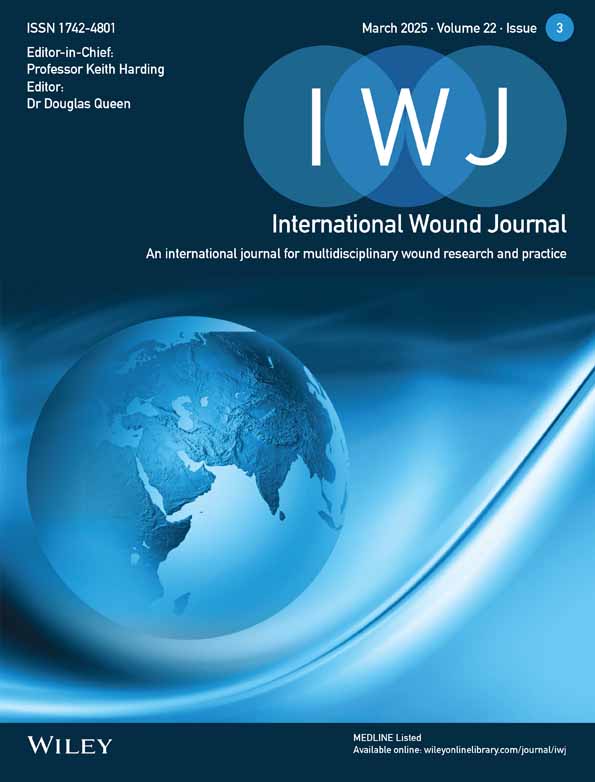
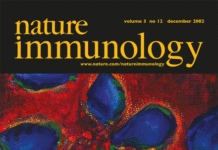

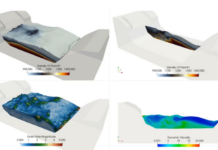


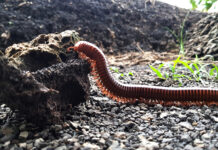
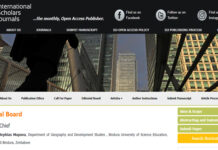



 The African Research (AR) Index is a comprehensive scholarly directory and database focused explicitly on journal publishers that publish and disseminate African research.
The African Research (AR) Index is a comprehensive scholarly directory and database focused explicitly on journal publishers that publish and disseminate African research.

